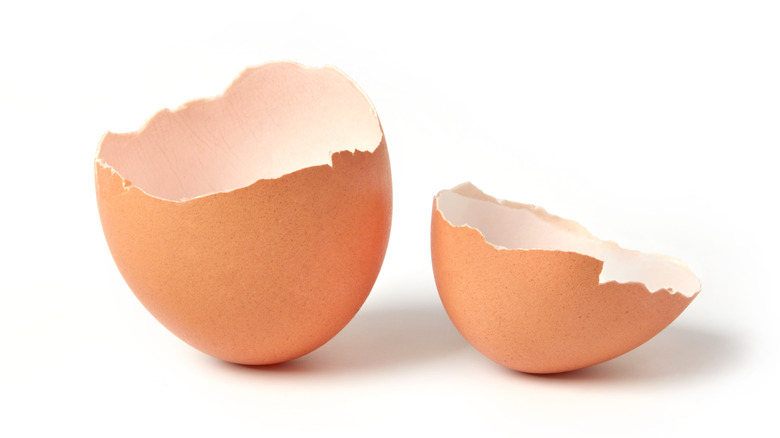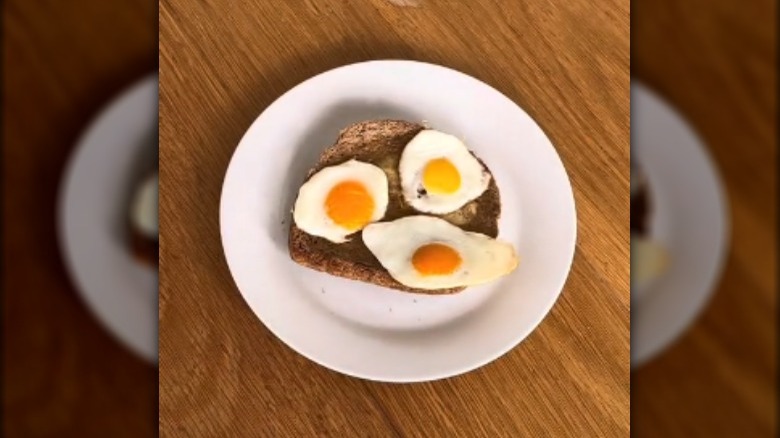The 'Mini' Egg Hack That Has TikTok Seriously Concerned
Smaller things are often better. Mini M&M's taste better than the original. Aldi shoppers can't stop raving about mini quiches. There's no standard-sized Cooper automobile, but if there were, the Mini Cooper would almost certainly be superior. Rather than thinking big, sometimes it's wiser to think in miniature. However, this is not always the case. The Office of Science shows that smaller might be worse when it comes to radiation resistance. The same might also be true for eggs, though for massively different reasons that have nothing to do with radiation.
Normally, when you buy eggs, you can get them in a variety of sizes. Usually in a supermarket, the smallest egg you'll see is a medium, unless you're buying finger foods to try, like quail eggs. There are small and peewee egg options, so says Saunder's Eggs, but they aren't as common in grocery stores as the large, extra large, or jumbo varieties. This means that anyone who wants just a hint of egg might need to find another way to get their whites and yolks shrunk down.
It's just this problem of "large eggs" that really didn't seem to be a problem at all until one TikTok user showed a way to make eggs smaller. While their trick certainly allows people to make smaller cooked eggs, many social media users are worried that this will cause people to get food poisoning.
The USDA does not support the 'mini' egg hack
There certainly are good food trends on TikTok that are worth trying. Then there are food ideas that have big problems. Sadly, the 'mini' eggs that one TikTok user makes fall into the "might make you violently ill" category, which presumably qualifies as a "big problem."
The TikTok video shows a person freezing a pair of eggs, taking them out of the freezer with their shells cracked, then cutting them into slices to form "mini" eggs. Several commenters made a point of saying this was not wise. "Never freeze an egg," explained one taciturn person. Another provided more, saying, "Apparently it give you food poisoning," which is something you can avoid. While that should have been a deterrent, or at least an invitation to look up scientific information, another comment immediately offered the argument, "Ain't no one getting food poisoning from a frozen egg bruh."
The USDA actually has addressed this topic and states, "Shell eggs should not be frozen." It goes on to specifically say, "If an egg accidentally freezes and the shell cracked during freezing, discard the egg." It explains an egg with an uncracked shell can be thawed and used, but if the shell is cracked there's a potential for Salmonella poisoning, according to the CDC. This is because salmonella commonly gets on the shells and then seeps into the egg when the shell is cracked. This is likely why the USDA advises against cracked shells, bruh.

